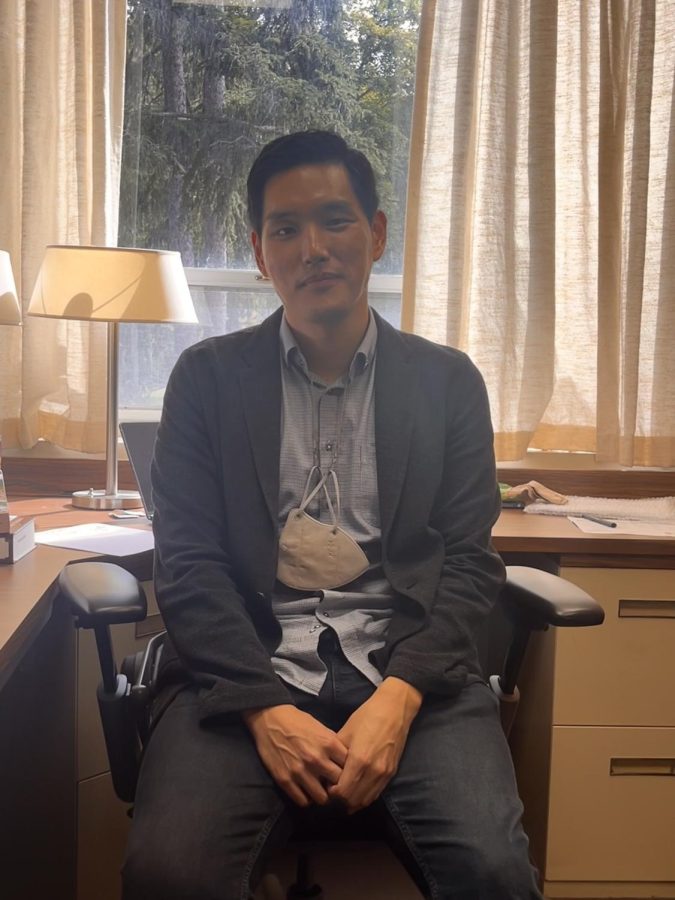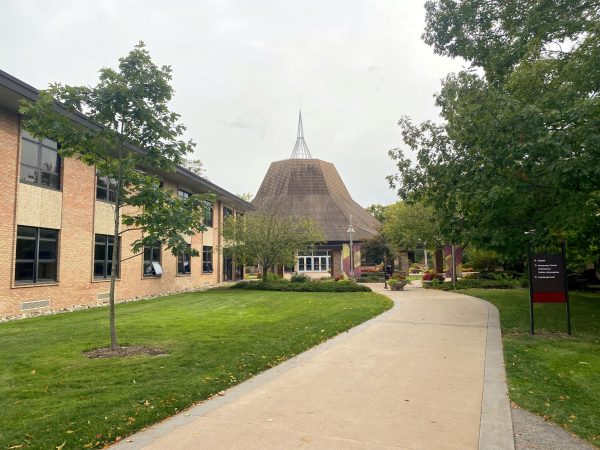Analytical and intuitive: different cultural perspectives enhance religion classes
The Christian Reformed Church in North America, Calvin’s denominational affiliate, has been significantly influenced by Asian and Asian American members. More than 100 of the CRCNA’s member churches were established by Korean immigrants. At Calvin two religion professors are working to help students find belonging and embrace the breadth of global Christian understandings of scripture.
“Being a minority in America, Yang said, can sometimes feel like being a foreigner in your own country.
Religion professor Jae Yang said his Asian American identity makes him “more aware of marginalized voices and issues that affect non-white people.” This semester is Yang’s first at Calvin, where he is a professor in the religion department. Helping everyone to feel at home is a priority for Yang. He encourages his students to “actively seek fellowship with minorities.” Being a minority in America, Yang said, can sometimes feel like being a foreigner in your own country.

Professor Won Lee has been teaching religion at Calvin since the fall of 1996. As a native of South Korea, Lee understands firsthand the struggle of many international students when trying to fit in. “In 1996 in the Calvin community, there were not as many international or ethnic minority faculty members,” Lee said. It was clear to him that being neither Dutch nor a Calvin alumnus made him stand out. So why was he here? “God brought me here,” Lee said. “God brought me here to tell my story.”
Connecting the two sides
“The western way of learning the Bible tends to be more analytical while the eastern way is more intuitive. Instead of choosing one, Calvin decided to bring those things together,” Lee said.
“It is always important to connect both the analytical way and the intuitive way.
As someone who had lived and studied in the east and the west, Lee was the perfect candidate to bridge the gap. “My analytical side will give me a tool to criticize my intuitive holistic side,” Lee said. The eastern way of learning could be seen as looking at the big picture while the western way looks at the fine details, according to Lee. For Lee, the western way of learning the Bible enhances the eastern way of learning the Bible and vice versa.
“It is always important to connect both the analytical way and the intuitive way,” Yang said. Using both ways can help unite the students with one another. For Lee, combining both perspectives enhances students’ experience by expanding their understanding of the Bible.
This story has been edited to reflect that Jae Yang is a full professor at Calvin, not an adjunct. Chimes regrets this error.






